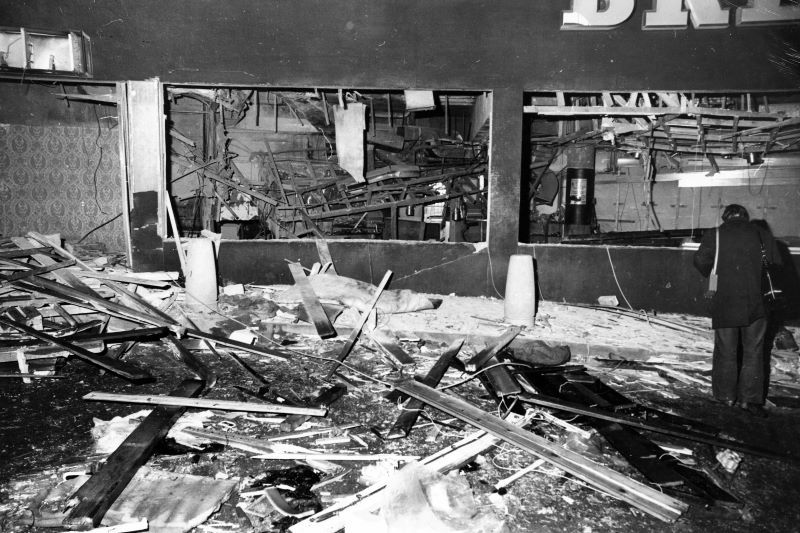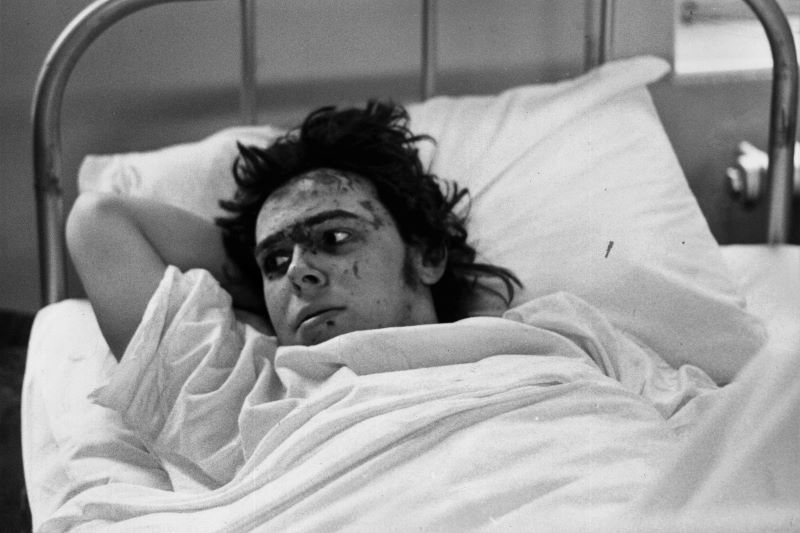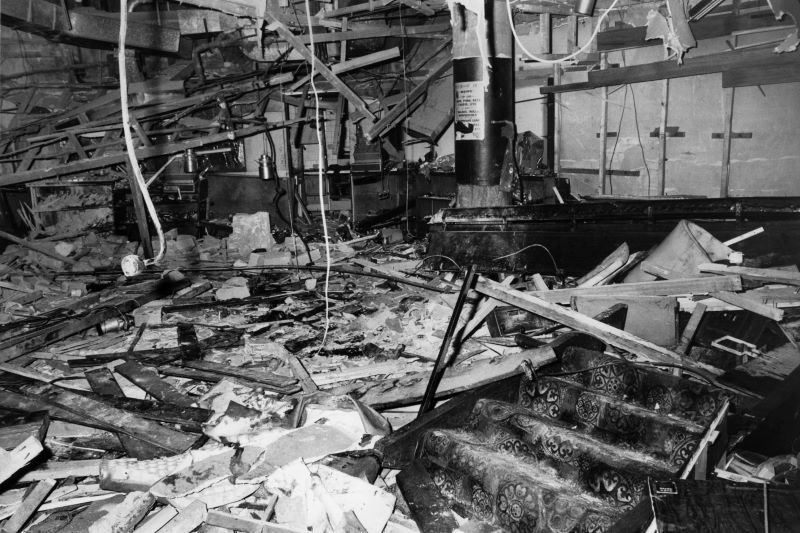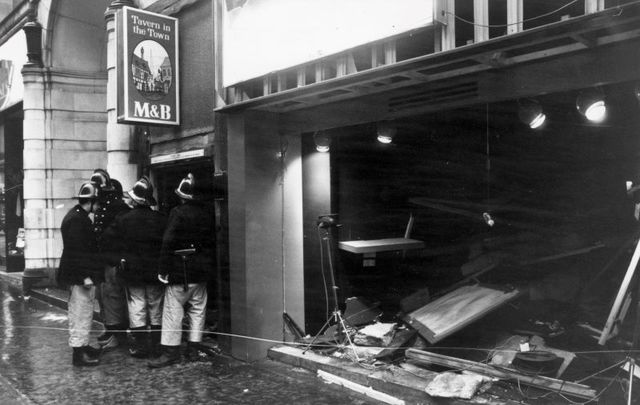Witness O named four of the men involved in the fatal 1974 Birmingham pub bombings during an inquest this week
A former IRA member has named four men he believes to be responsible for the Birmingham pub bombings on November 21, 1974.
Read More: MI5 plot to "shoot up" a Catholic grade school during The Troubles revealed
The BBC reports that while speaking at an inquest on Friday, the former IRA bomber, known only as ‘Witness O,’ said he was given permission by the current head of the IRA in Dublin to name those involved in the 1974 attacks.
Witness O, who was speaking at the inquest via a secure video link, said the bombings were "an atrocity."
The inquest was not meant to address the identities of the bombers, but after being told that relatives had been in "pain and suffering for the last 44 years," Witness O agreed to name them.
The Birmingham Bombings
On November 21, 1974, two pubs in Birmingham - the Mulberry Bush and the Tavern in the Town - were bombed, killing 22 people and injuring more than 200 others.
The inquest heard this week that police officers responding to the initial warning of the bombs were not told it was a "coded" event. Ex-constable Rod Hazlewood, who responded to the event and recovered some of the casualties, said he "would have directed you more appropriately" had he known about the code.
An inquest into the bombings was first opened in November 1974 but was shut down in order to allow time for criminal investigations. In 1975, six men were convicted of the bombings but were later acquitted in 1991. They became known as The Birmingham Six.
A new inquest into the incident now continues.

Inside The Mulberry Bush (Getty Images)
Read More: Bernie Sanders wrote to Margaret Thatcher about the IRA hunger strikers
Birmingham operation “went badly wrong”
The Guardian reports that on Thursday, the day before Witness O named those involved, Kieran Conway, the former chief of intelligence for the Dublin IRA, said he did not believe the bombings constituted murder: “No, I don’t agree. I believe it was an IRA operation that went wrong.”
“Had the IRA deliberately targeted that pub with the intention of killing civilians then that would have been murder, yes. But in the circumstances, as I have been told, I don’t accept that it was murder.”
“I say that it was an IRA operation that went badly wrong.”
Conway added: “I understand perfectly that this is unacceptable to the British people but I would categorize them as accidental.”
Civilian targets were “strictly and loudly forbidden”, Conway later added.

Stuart Smith was injured at The Tavern in the Town (Getty Images)
Read More: Irish police compiling list of IRA sympathizers to prepare for hard border post-Brexit
Naming those involved in the Birmingham bombings
In court, Witness O, who was in prison at the time of the bombings, named those responsible as Seamus McLoughlin, Mick Murray, Michael Hayes, and James Gavin. These four men have previously been named as involved with the fatal bombings, but never in a formal setting, says the BBC.

Inside The Mulberry Bush (Getty Images)
The Guardian reports that Witness O named two other men, ‘Dublin Dave’ and ‘Socks’, but said he did not know either’s real name.
Seamus McLoughlin was the commanding officer for the Birmingham IRA at the time of the incident and was responsible for selecting targets, according to Witness O.
Witness O said he gave police detective McLoughlin’s name a few days after the incidents, but heard nothing more.
Witness O also said Mick Murray, who died in 1999, was "one of the bombers.” He said how Murray told him there would be "no harm" if similar bombings had been repeated, because of the "chaos" caused.
The Guardian reports that while Witness O admitted Michael Hayes was a member of the bombing team, he said Hayes “can’t be arrested."
"There is nobody going to be charged with this atrocity. The British government have signed an agreement with the IRA.”
In 2017, Michael Hayes told BBC News Northern Ireland that he was involved in the 1974 bombing and offered his “apologies and heartfelt sympathies.”
Read More: "IRA" claims Derry car bomb attack, issues warning to British forces
In the same 2017 interview, Hayes said the Birmingham bombs were not meant to kill civilians, and that when he learned the death toll of the first two bombs, he personally defused a third.
Hayes said that as he understood it, one of the phone boxes used for the telephone warnings was broken and another one was being used.
Of James Gavin, Witness O said: "Well, he was [involved], I met him in Dublin and he said he was.”




Comments